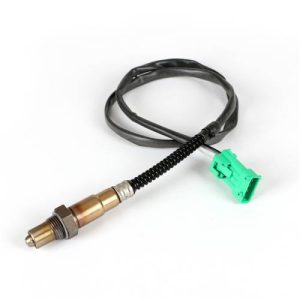Your cart is currently empty!
What caused the oxygen sensor to fail? What if the oxygen sensor to fails?
As a dedicated voice in the realm of automotive news, we delve into a crucial aspect that concerns vehicle owners – Oxygen Sensor to Fail. This article takes a comprehensive approach to unravel the causes behind Oxygen Sensor to Fail and outlines the potential consequences when these vital components cease to function optimally.

What Caused the Oxygen Sensor to Fail?
The Oxygen Sensor to Fail can be attributed to various factors, including:
Age and Wear: Oxygen sensors, like all mechanical components, have a finite lifespan. Over time, exposure to heat, exhaust gases, and normal wear can lead to Oxygen Sensor to Fail.
Contaminants: Exposure to oil, fuel additives, and other contaminants can affect the sensor's accuracy and functionality.
Excessive Heat: Extreme operating temperatures, often caused by engine overheating, can damage the sensor's internal components.
Wiring Issues: Damaged or corroded wiring can disrupt the communication between the sensor and the Engine Control Unit (ECU), leading Oxygen Sensor to Fail.
What If the Oxygen Sensor to Fail?
Reduced Fuel Efficiency: A Oxygen Sensor to Fail can lead to an imbalanced air-fuel mixture, causing reduced fuel efficiency and increased fuel consumption.
Increased Emissions: Oxygen Sensor to Fail can't accurately measure the oxygen content in exhaust gases, leading to increased emissions of harmful gases like nitrogen oxides and carbon monoxide.
Engine Performance Issues: Oxygen Sensor to Fail can cause poor acceleration, rough idling, and engine misfires, leading to a less enjoyable driving experience.
Check Engine Light: A failing oxygen sensor is often detected by the vehicle's onboard diagnostics system, triggering the "Check Engine" light on the dashboard.
The Importance of Timely Repairs
Addressing a Oxygen Sensor to Fail promptly is essential to mitigate potential consequences:
Improved Fuel Efficiency: Timely replacement ensures optimal air-fuel mixture, enhancing fuel efficiency and saving money on gas.
Emission Control: Functional sensors contribute to lower emissions, aligning with environmental regulations and reducing your carbon footprint.
Engine Health: Prompt repairs prevent engine performance issues, ensuring smooth acceleration and reliable operation.
Conclusion
In conclusion, understanding the causes and consequences of Oxygen Sensor to Fail is vital for vehicle owners. Regular maintenance, avoiding contaminants, and addressing issues promptly contribute to a longer sensor lifespan. Monitoring your vehicle's performance and addressing "Check Engine" lights promptly can save you from potential inefficiencies and environmental repercussions. As responsible vehicle owners, we hold the power to maintain optimal vehicle health and contribute to cleaner, more efficient roads.






Leave a Reply